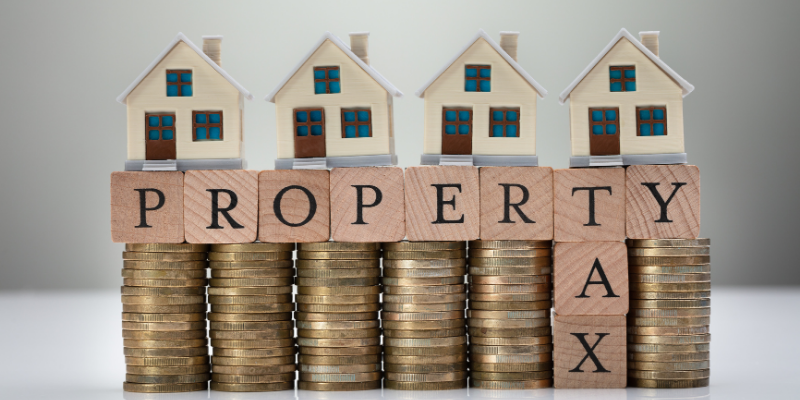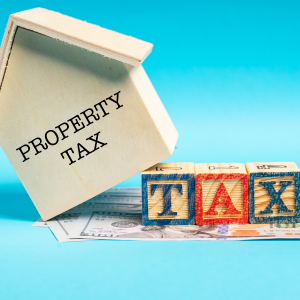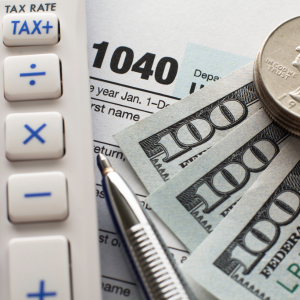
Understanding Property Tax Obligations in Tampa, FL
In Tampa, Florida, understanding property tax obligations is crucial for homeowners and real estate investors alike. Property taxes in Tampa are a critical component of the local government’s revenue, funding essential services such as schools, infrastructure maintenance, and public safety.
Homeowners in Tampa must be aware of annual property tax assessments conducted by the Hillsborough County Property Appraiser’s Office to determine the taxable value of their real estate holdings. The assessed value directly influences the amount owed each year.
Timely payment of these property taxes is essential to avoid penalties and interest charges that accrue on overdue balances. Delaying payments can lead to serious financial consequences, including liens on the property or even foreclosure proceedings initiated by the county government.
If you’re considering selling your home in Tampa and want to ensure a seamless transaction amid your property tax obligations, working with a trusted local expert is key. Navigating these financial responsibilities while preparing your home for sale can be complex, especially if you’re also juggling mortgage or equity concerns. Revival Homebuyer in Tampa can help guide you through the selling process, ensuring your property tax requirements are addressed properly while maximizing your home’s value in the current market.
Legal Framework for Property Taxes in Tampa, FL
In Tampa, Florida, the legal framework for property taxes is governed by a robust set of regulations designed to ensure equitable tax collection and support local government functions. Property taxes in Tampa are primarily based on assessed property values, which are determined annually by the Hillsborough County Property Appraiser.
These assessments play a crucial role in calculating the amount due from property owners each year. The legal statutes require that property owners receive a Notice of Proposed Property Taxes, also known as a TRIM notice, which outlines their obligations and provides information on how these taxes contribute to public services such as schools, infrastructure, and emergency services.
Delays in paying property taxes can result in significant penalties under Florida law, including interest charges and lien imposition on the property. If left unpaid, these liens may eventually lead to tax deed sales, where the property can be sold at auction to recover owed taxes.
Thus, understanding this legal framework is essential for Tampa real estate investors and homeowners to avoid severe financial repercussions associated with delayed tax payments.
Key Deadlines for Property Tax Payments in Florida

In Florida, understanding the key deadlines for property tax payments is crucial, particularly for property owners in Tampa’s real estate market. Property taxes in Florida are typically due by March 31 each year, with bills sent out in November of the prior year. To incentivize early payments, discounts are offered: a 4% discount if paid in November, decreasing to 3% in December, 2% in January, and 1% in February. Missing these deadlines can lead to significant consequences, such as penalties and interest accruing on unpaid balances after April
Furthermore, any unpaid taxes may result in a tax certificate being issued and potentially sold at auction, which can ultimately lead to foreclosure if not redeemed. It’s essential for property owners to stay informed about these deadlines to avoid financial repercussions that could impact their investment and standing within the Tampa real estate market.
Strategies for Managing Property Tax Payments Effectively
To effectively manage property tax payments in the Tampa real estate market, property owners can adopt several strategic approaches to avoid the adverse consequences of delayed payments. Setting aside a dedicated savings account specifically for property taxes ensures that funds are readily available when payment deadlines approach.
Engaging with a financial advisor familiar with Tampa’s real estate tax regulations can provide tailored advice on budgeting and forecasting future tax obligations. Additionally, utilizing online tools and apps for tracking due dates and setting reminders can prevent missed payments.
Exploring installment plans offered by local tax authorities may also offer relief by spreading out the financial burden over time, reducing the risk of accruing penalties or interest from late payments. Owners should regularly review their property’s assessed value to ensure they aren’t overpaying and file appeals if discrepancies arise, potentially lowering their annual tax bill.
If you’re unsure how to navigate property tax payments while managing your Tampa real estate investment, don’t hesitate to contact us for expert assistance. Whether you’re exploring installment options, reviewing your assessed value, or planning for a future sale, our team can help you make informed decisions that protect your finances and ensure compliance with local tax laws.
Tips for Reducing Your Overall Property Tax Burden in Florida
Cutting your property tax bill in Florida, especially in the fast-moving Tampa market, starts with a simple plan. First, make sure you claim every exemption you qualify for, with the Homestead Exemption being the most powerful for long-term owners.
Because this break shrinks the taxable value of your home once you prove it is your main address, the savings can be dramatic. After that, pay attention to local board meetings or newsletters so you know right away if officials propose changes that could push your bill higher.
You should also look over the annual assessment and, if it seems inflated, file an appeal with the county appraiser’s office before the deadline. Adding rooftop solar, better insulation, or Energy Star appliances not only cuts monthly bills but may also earn special credits that ease the tax load.
Finally, team up with a real estate professional who knows Florida’s ever-evolving rules; their advice can uncover lesser-known write-offs and keep your taxes down across Tampa and its suburbs.
Common Mistakes to Avoid with Tampa’s Property Taxes

Tampa homeowners often trip over the same property-tax pitfalls, and these slip-ups can bite hard in the wallet. A big one is thinking that paying on time isn’t that serious.
Letting a bill linger stacks on penalties and interest, turning an ordinary bill into a far larger surprise. Likewise, tuning out changes to Tampa’s tax rate or new exemptions can mean missing savings or, worse, welcoming a higher bill at the worst possible moment.
Another misstep is not checking that the county’s assessment is correct; an inflated number means the owner pays too much. On top of that, failing to save enough cash each month for the looming tax bill can create a stressful scramble when the due date rolls around.
For Tampa homeowners who may be struggling with rising property taxes or missed payments, selling the property could be a practical solution to regain financial control. Rather than letting tax debt accumulate, consider working with cash home buyers in Tampa and nearby cities who can close quickly and provide a straightforward process. This approach allows you to avoid long delays, liens, or foreclosure proceedings while unlocking the equity in your home and starting fresh with less financial burden.
Consequences of Delayed Property Tax Payments in Florida
When Tampa homeowners put off paying their property taxes, trouble can come knocking fast. In Florida, late bills start generating interest right away, so what begins as a small amount grows quickly.
On top of that, the county can sell a tax lien certificate to outside buyers after a certain period. That buyer pays the back taxes, and in return, the homeowner owes them interest until the debt is cleared.
Let the bill slide for more than two years, and the authority may file a tax deed application, putting the home on a path toward foreclosure. Such actions risk losing the property and can also drag down credit scores, making loans and other deals harder later.
To protect their investment and stay in good standing, Tampa residents should make paying property taxes on time a top priority.
How Long Can Property Taxes Go Unpaid in Florida?
Property taxes keep Florida’s schools, roads, and emergency services running, so knowing what happens when payments slip is critical for Tampa homeowners. In Tampa and the rest of the state, taxes become officially late if they are not settled by April 1 of the year after they were assessed.
After that date, interest and penalties start piling up, turning a small balance into a bigger headache. Let things drag on for two years or more, however, and the county can issue a tax certificate.
That certificate lets an investor cover the overdue bill and, in return, collect interest from the homeowner at a steep rate. If the debt is still unpaid two years later, the investor may apply for a tax deed, putting ownership at serious risk.
By keeping these deadlines and possible outcomes in mind, Tampa property owners can protect their investment and steer clear of the harsh fallout of overdue taxes.
How Long Can You Go Without Paying Taxes in Florida?

If you own a home in Tampa, knowing what happens when you miss a property tax deadline matters more than you think. In Florida, taxes on real estate stop being considered current on April 1 of the year after they are assessed.
Once the deadline passes, Tampa officials can auction a tax certificate beginning June 1. That sale lets investors cover the overdue bill and then collect interest, but it can quickly drag the original owner deeper into debt.
Although an immediate foreclosure is not on the table, late fees and daily interest keep piling up, making the bill grow larger every month. If the debt stays unsettled for two full years, the certificate holder can file for a tax deed, and the homeowner risks losing the house.
Paying on time or acting fast with workable alternatives is therefore the smartest way to protect your Tampa property from these serious and costly consequences.
What Happens If Someone Pays My Delinquent Property Taxes?
If a person steps in and clears your overdue taxes on a Tampa property, the ripple effect on your ownership can be real. When tax bills go unpaid, the county usually slaps a lien on the house to secure the missing funds.
That lien can then be sold at a public auction, letting private bidders buy the right to pursue the debt. Should an investor jump in and cover the overdue amount, they gain the legal claim to collect what you owe, plus any added interest and fees.
In practical terms you keep title to the property, but you swap the county debt for a new bill that now includes the investors’ payment and the promised interest. If you dont settle that bill within the deadline, the buyer of the lien can move to start foreclosure, putting your home and its equity at serious risk.
If you’re facing delinquent property taxes in Tampa and want to avoid the risk of foreclosure due to unpaid tax liens, selling your home might be a smart financial move. Partnering with cash home buyers in Florida and nearby cities allows you to settle your debts quickly and move forward without the stress of looming legal action. These buyers specialize in purchasing homes in as-is condition, providing fast closings, and helping homeowners escape difficult financial situations tied to property tax default
Need to sell your place? Move fast, skip expensive repairs, or ditch the headaches of a traditional listing. Revival Homebuyer is ready to support you. We provide honest cash quotes, handle every detail, and make the closing smooth from start to finish. Have questions or want to begin? Call us at (813) 548-3674 for your free, no-pressure offer. Get started today!
| LIENHOLDER | EQUITABLE LIENS | KANSANS | STATE OF KANSAS | MEDICAL SERVICES | HEALTH CARE |
| MEDICAL CARE | BALANCE BILLING | INSURANCE COMPANY | INSURER | FORECLOSE | STATUTES OF LIMITATIONS |
| ATTORNEY | LAWYER | LEGAL COUNSEL | LITIGATION | HEALTH CARE PROVIDER | INJURIES |
| INJURY | COMPENSATION | DAMAGES | ACTUAL DAMAGES | WAGES | PAID OFF |
| PERSONAL INJURY | PERSONAL INJURY CLAIM | MARRIAGE | GARNISHING WAGES | FINANCES | |
| CREDIT COUNSELOR | COPAYMENTS | CO-PAYMENT | SOLOSUIT | INFORMATION | BORROWER |
| CONTRACTS | COMPLAINT | BUDGETING | TRUST | TOOL | TEXAS |
| TAX | TAXATION | SUMMONS | COURT SUMMONS | REPAYMENT PLANS | REAL PROPERTY |
| MEDICARE | MASSACHUSETTS | HEALTH CARE PROVIDERS | HEALTH PRACTITIONER | HEALTH CARE PRACTITIONER | GFE |
| GOOD FAITH ESTIMATE | GOOD FAITH | DEDUCTIBLES | DEBT FORGIVENESS | CONSUMER PROTECTION LAWS | COMPANY |
| CASH | CREDIT INSTITUTIONS | ATTORNEY FEES | ATTORNEY’S FEES | THE UNITED STATES | TERMS OF USE |
| RESEARCH | PRIVACY | PRACTITIONER | PHYSICAL THERAPY | PHYSICAL THERAPIST | DOCUMENT |
| CREDIT REPORT | IN MISSOURI IF | A PAYMENT PLAN | TERMS OF USE | MY HOUSE IN MISSOURI | FOR UNPAID MEDICAL BILLS |
| IN MISSOURI IN MISSOURI | YOUR HOUSE IN MISSOURI | HOUSE GO INTO FORECLOSURE | AND REAL ESTATE IN | LAWYER TO SELL MY | DOCUMENTS NEEDED TO SELL |
| CLAIM DEED ON A | ESTATE AFTER HOUSE IS | MEDICAL BILLS TAKE YOUR | CLAIM ABANDONED PROPERTY IN | IF THE DEBT IS | AN ESTATE AFTER HOUSE |
| PROBATE AND REAL ESTATE | TO CLAIM ABANDONED PROPERTY | DEED ON A HOUSE | I NEED LAWYER TO | TERMS OF USE AND | DOES A FORECLOSURE TAKE |
| SETTLE AN ESTATE AFTER | CAN MEDICAL BILLS TAKE | QUITCLAIM DEED ON | A FORECLOSURE TAKE IN | TO SETTLE AN ESTATE | DAMAGE TO PROPERTY IN |
| ADMINISTRATOR OF ESTATE IN | LEGAL ACTION TO COLLECT | GO INTO FORECLOSURE IN | A QUITCLAIMCLAIMDEED | NEED LAWYER TO SELL | SALE OF PROPERTY IN |
| DO I NEED LAWYER | COURT-ORDERED SALE OF | COURT-ORDERED SALE OF | BECOME ADMINISTRATOR OF ESTATE | TENANT DAMAGE TO PROPERTY | ORDERED SALE OF PROPERTY |
Helpful Tampa Blog Articles
- How to Sell Your Tampa House if You Have Bad Neighbors
- Understanding Real Estate Agent Fees For Home Sales In Tampa, Florida
- Can a Tampa HOA Legally Take Your Home in Florida
- How To Successfully Sell A House With Asbestos In Tampa, Florida
- Maximizing Your Home’s Value: Essential Renovations To Sell Quickly In Tampa, FL
- Mastering Home Sale Contingencies In Tampa
- Selling A Condemned House In Tampa
- Legal Fees for Selling a House in Tampa, Florida
- Short Sales To Relatives In Tampa
- Optimal And Challenging Months For Selling Your Home In Tampa
- Effective Strategies To Minimize Closing Costs In Tampa Real Estate
- Best Things to Do in Tampa, FL with Kids

